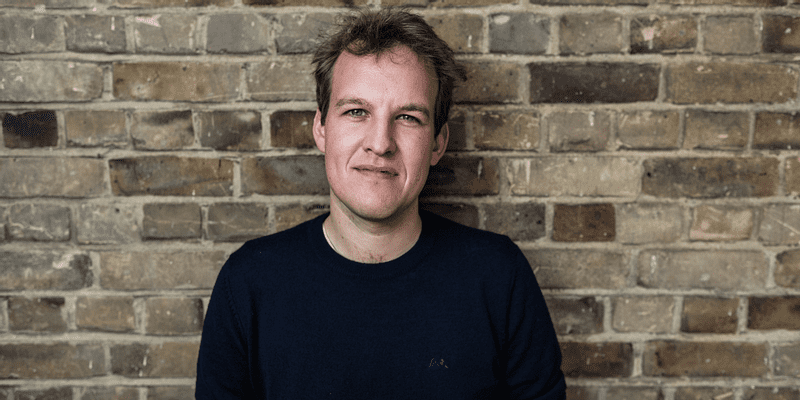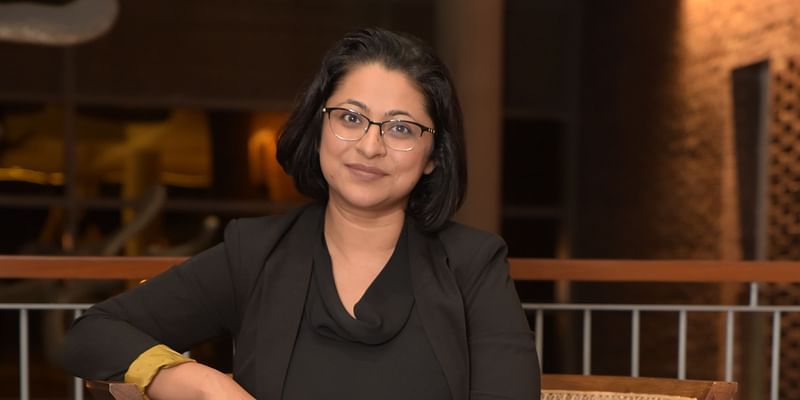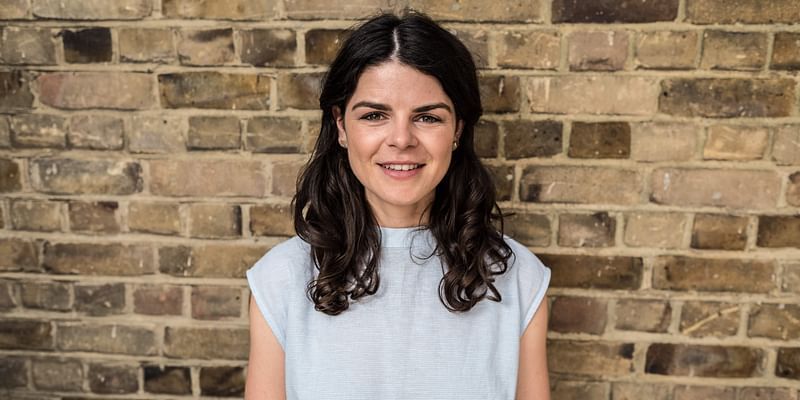When Matt Clifford and Alice Bentick started Entrepreneur First (EF) in 2011, they had one thought in mind - can entrepreneurs be created?
Their thesis was - why are large scale companies, valued at over a billion dollars, highly concentrated only in the Silicon Valley? They believed that while the talent needed to build these companies is present across the globe, why aren’t there enough entrepreneurs being created?
Today, EF has taken in over 2,000 individuals and turned them into successful entrepreneurs. Over the years, the London-based talent investor has set up over 200 companies across Europe, Asia, and India, and has been focussed on building founder and entrepreneurial skills.

Matt Clifford, Co-founder, Entrepreneur First
These companies have raised over $500 million and have had a combined valuation of $2 billion. Some of the big names in its portfolio include - Bloomsbury AI, acquired by Facebook; Magic Pony Technology, acquired by Twitter; and spacetech startup OpenCosmos.
EF has been backed by the likes of LinkedIn Founder Reid Hoffman, Founders Fund, Greylock Partners, Taavet Hinrikus of Transferwire, and Demis Hassabis of Google Deepmind.
Unlike other accelerator programmes, an individual can enter the EF programme at a pre-idea, pre-co-founder, and pre-company stage, and exit with a team and a startup.
In 2018, the EF team came to Bengaluru, India, to tap into the technical and business talent, market opportunity, and available global capital in the region. So far, EF has helped build close to 50 Indian startups.
The team said it looks for individuals who display great talent but are not too pleased with the status quo. They look for people who want to make a difference and solve large problems.
Some of the prominent companies that have been part of the EF programme include Bengaluru-based BrainSight.AI, a SaaS tool that helps psychiatrists to diagnose mental disorders using MRI scans; Singapore-based AtomBrush that builds robots to automate the laborious task of painting buildings; and LightSpeedAI Labs, which is building an optoelectronic processor that accelerates AI computations.
Esha Tiwary, General Manager, EF India, believes the kind of companies that are being born out of India are building global products, for the global markets.
In an interaction with YourStory, Matt and Esha talk about the key things they have learnt, and what they look for in individuals and founders.

Esha Tiwary, General Manager, EF India
Be open to experimentation and change
Matt Clifford: When we started up in 2011, there was hardly anyone who believed in us or what we planned to do. But we were at it and kept trying new things and experimenting on what worked and what did not work. We were focussed on the core idea and were looking for hungry talent - people who were dissatisfied with the status quo. They might have had a great job, might be making a lot of money, but were still looking for something more.
Esha Tiwary: In the first few months of the pandemic, many people were still getting used to the shift, they were unsure of how people and markets would behave. But today, we see individuals using the transition to their advantage and using the behaviour shift of the consumer to build products and companies.
The duo believe it always helps to keep an open eye and open mind on what the market has to offer.
Look to build global products and brands
While EF is present in different parts of the globe, it looks for founders and helps them build ideas that have a global market and presence.
Esha: We look to build companies that are going to be massive and have a global impact. They can start with demonstration of the product-market fit in India, but they need to have a global audience. The idea is to build large scale companies with over a billion dollar market cap.
Adding to Esha’s point, Matt explains, while each country has its unique problem, for a country like India, the product can be scalable within India itself, but the idea is to solve for a large enough problem for a bigger audience.
Matt: In the past 20 years, the internet has flattened the world. And now, the coronavirus pandemic has further flattened the world.
Today, everything is virtual. A few years ago, the idea of an investor sitting in the US, funding in a seed round in an Indian startup over a phone call or a video call was unthinkable. But today, the dynamics and the way we do business has changed.
COVID has also taught us how to do business in a remote world and the friction of working remotely has dissolved.

Alice, Co-founder, Entrepreneur First
Successful entrepreneurship is about the mindset
Matt: Successful entrepreneurship is about a series of habits, mindset, and particular actions. And entrepreneurs need to develop the habit and mindset of urgency.
If you build a culture of urgency in your organisation, where you are working to deliver something under a tight deadline, the speed becomes your competitive advantage.
The purpose of any company for the first three years, at least, is to learn about the customer, market, and what they need. The question is how can you move quickly so that your learning compounds?
Focus only on the core
Matt: It is very easy for startup founders to get distracted from their core. When I see founders spending a lot of time at startup conferences, or spending ages designing their business cards, I tell them one thing - these don’t matter. Startups shouldn’t do PR until they’ve got something to sell.
I am always worried when someone seems to be more interested in being known as an entrepreneur than being known for actually working on a problem they’re trying to solve. Don’t get distracted by the noise.
Think Big. Don’t waste time on incremental improvements
Esha: Ask yourself what is worth your time. If we are talking about extremely talented and high potential individuals who have a high opportunity cost, they would have possibly given up lucrative jobs that were extremely well paying. So if you are thinking about entrepreneurship, think of what is the maximum impact you can have.
Towards this end, one of the frameworks we encourage individuals to think around is removing bottlenecks that may be there stopping one from creating great opportunity. What is it that you can unlock with your product that can change the way consumers do something, which creates a big market?
Don’t waste your time on incremental improvements and ideas that will change something only by a small margin. Only the big things are worth your time.
Focus on selling rather than building
Esha: Most people first think of building the product, but I encourage people to sell. It is important to really ratify that there is a consumer need to be built for, otherwise you end up building a product that you think is great and cool, but nobody needs it. There are many ways to sell before you build.
Understand if your consumer will pay to buy the product and if they are willing to make that shift in behaviour, and only then spend time building it.
Never lose sight of your North Star
Matt: As an entrepreneur, I’ve made many mistakes. But the ones that are most painful and frustrating are the ones where we lost sight of the North Star. While everything changes with time and market understanding, there needs to be a thread that pulls you in the right direction.
We too had several distractions like working for corporates and building different kinds of companies. But we figured that ultimately our objective was to build the best entrepreneurs, and if we aren’t doing that, everything else is a distraction.
Learn to say No
Matt: It is hard to say ‘no’ because they are genuinely cool. But as a founder, it is important to remember the difference between what is cool and what is important. The question you need to ask is - does this help you build or solve for the problem you are aiming to solve?
Edited by Megha Reddy
India’s most prolific entrepreneurship conference TechSparks is back! With it comes an opportunity for early-stage startups to scale and succeed. Apply for Tech30 and get a chance to get funding of up to Rs 50 lakh and pitch to top investors live online.
Link : https://yourstory.com/2020/10/ys-learn-founders-startup-entrepreneur-first
Author :- Sindhu Kashyaap ( )
October 08, 2020 at 05:40AM
YourStory



